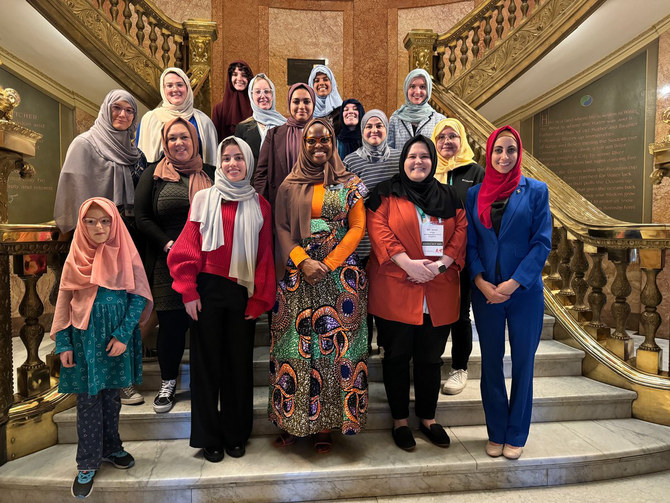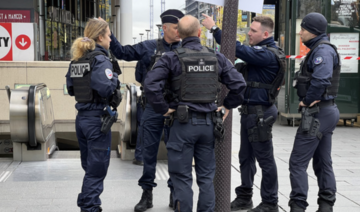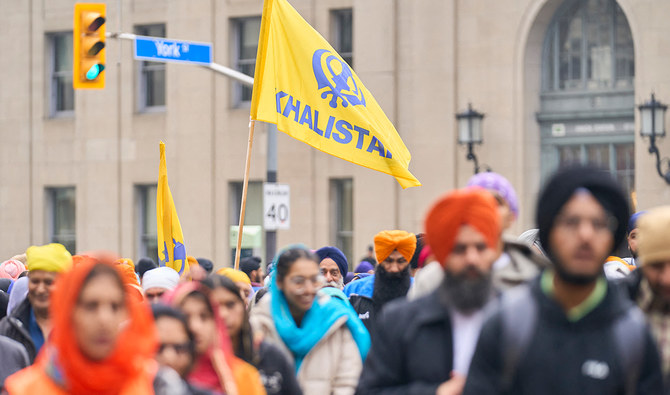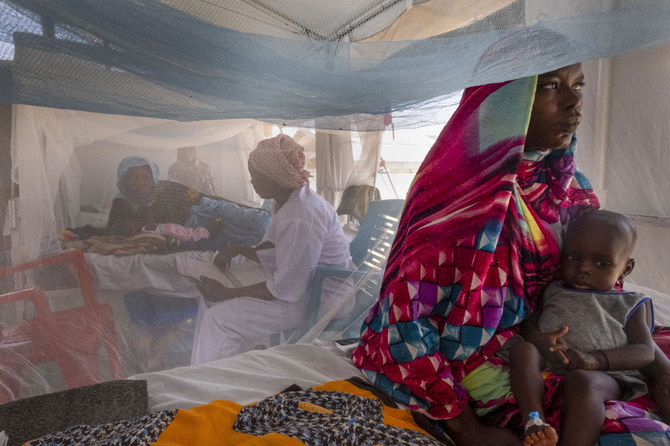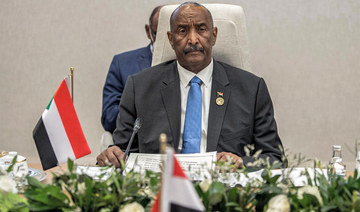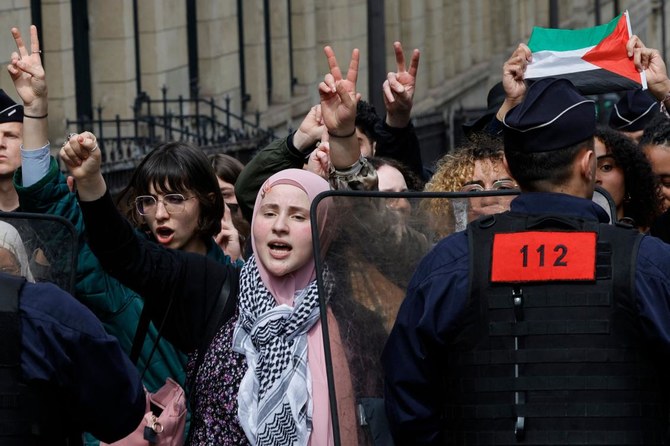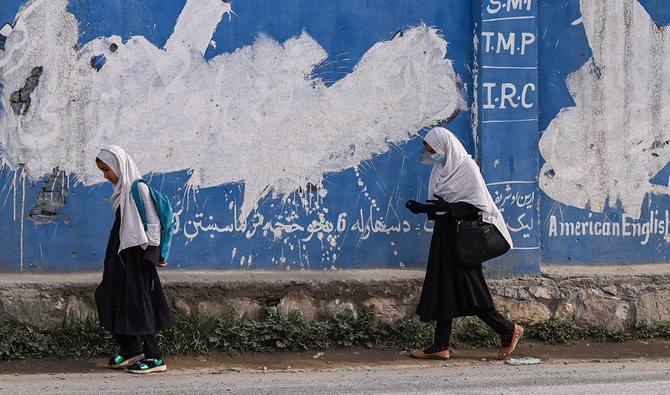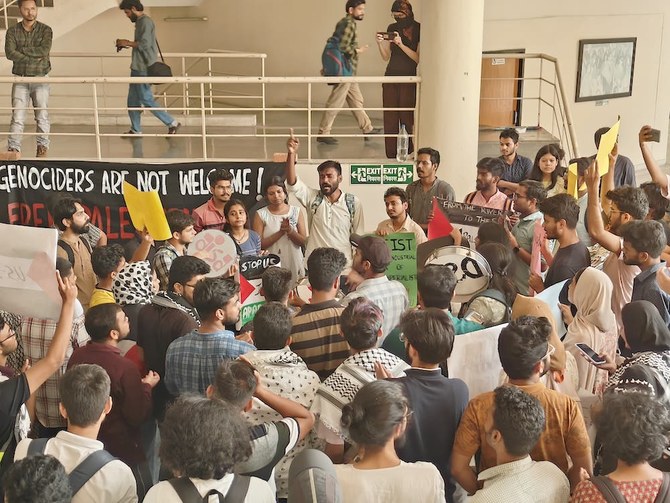LONDON: People in more than 150 countries celebrated World Hijab Day on Thursday with events designed to counter hijabophobia through raised awareness and improved education about the traditional Muslim head covering.
The headline event hosted by the World Hijab Day organization, which is based in New York, was its annual online conference, which featured speakers from 12 countries — Egypt, the US, the UK, Syria, Sri Lanka, Palestine, Afghanistan, Somalia, Pakistan, Bangladesh, Canada and Mexico — who presented their diverse perspectives on the issue.
“This year, we’ve collaborated with impactful partners like the New York Police Department to raise awareness about the significance of the hijab,” organizers told Arab News.

“The topics vary, reflecting the evolving discussions aligned with the changing world. Additionally, we’re enhancing transparency by teaming up with Launchgood (a crowdfunding platform with a particular focus on the global Muslim community) to raise funds, ensuring organizational growth for more impactful initiatives and events compared to previous years.
“This year’s edition of World Hijab Day aims to empower and inspire individuals through the theme #VeiledInStrength. By fostering a sense of resilience and confidence, we aim to challenge stereotypes and promote a deeper understanding of the strength inherent in those who choose to wear the hijab.”
World Hijab Day, which is celebrated on Feb. 1 each year, was founded in New York by Bangladeshi American Nazma Khan in 2013 with the aim of recognizing the millions of Muslim women who choose to wear a hijab and live a life of modesty.
The organization said common myths and ill-informed attitudes about the hijab include “misconceptions about Muslim women’s agency, intelligence or perceived oppression.”
It added: “Challenges arise in various spheres, such as the workplace or educational institutions, where bias may impact opportunities.
“This year, a noticeable trend is the increased interest from workplaces, particularly in Europe, in celebrating World Hijab Day, (and) the growing participation from this region indicates a shift toward greater inclusivity and acknowledgment of the significance of cultural diversity in professional settings.”
As perceptions and views about Muslim women have started to change in recent years and Islamic countries are increasingly opening up to the world, increased awareness and education provided by initiatives such as World Hijab Day, contribute to “dispelling stereotypes (and) fostering greater understanding,” the organization said.
“Organizations, including those advocating for Muslim women’s rights, are adapting to changing times by leveraging social media, organizing inclusive events, and collaborating with diverse communities to further raise awareness and promote a positive narrative.”
For this year’s event, World Hijab Day said it was placing a particular focus on hosting workshops on Muslim culture at educational institutions and workplaces, with the aim of addressing Islamophobia and helping to foster “an environment of safety within schools and workplaces for both Muslim students and professionals.”

The organization added: “Muslim hijabi women contribute significantly to various aspects of life, including the educational sector, political sector, medical sector, law enforcement and many other sectors.
“In many countries, efforts are made to promote their integration. For instance, in the United States, Muslim women wearing the hijab actively participate in schools, politics, sports and other workplaces, breaking barriers and fostering inclusivity.
“Similarly, countries like the United Kingdom and Canada … showcase examples of successful integration, emphasizing the importance of diversity and understanding in creating inclusive environments.”
One example the organization gave of this was when, in 2018, politician Salma Zahid became the first MP to wear a hijab in the Canadian parliament. On Thursday, she said she was proud to have broken new ground in this way.
“It was a personal choice I made following a health crisis that brought me closer to my faith, and I will always stand with women and girls who make their own choice, whatever that choice is,” she said.
“In a time of rising Islamophobia, I hope World Hijab Day can be a day for conversation and dialogue about the choices we make and respecting the right of women to make their own choice today.”
World Hijab Day organizers said funds raised during this year’s event will be used to develop educational materials for use during future World Hijab Day celebrations worldwide and online; boost the organization’s social media presence; host educational conferences and events in workplaces and communities to help dispel misconceptions about the hijab; and to maintain the organization’s website.
UK-based international humanitarian charity Penny Appeal was one of the organizations participating in the World Hijab Day celebrations.
“This day serves as a reminder of the personal freedom of religious expression and cultural understanding” by “inviting women from all walks of life to experience wearing the hijab for one day annually,” it said.
“On this World Hijab Day, Penny Appeal reaffirms its commitment to empowering women and promoting understanding and inclusion across cultures and religions.”
In particular, it highlighted the achievements of its own CEO, Ridwana Wallace-Laher, “who is one of the first Muslim hijabi women to lead an international humanitarian charity.”
She was appointed to the position less than a year ago and “has since become a beacon of empowerment and inspiration for Muslim women around the world,” the charity added.
“Many people think the hijab is oppressive to women but I am proof that it is an empowering piece of clothing that demands respect and admiration. It is a sign of strength and identity,” Wallace-Laher said.
It is important to challenge the stereotypes and stigmas associated with the hijab, she added. She encouraged women who have never worn one to take the opportunity to try it, saying: “You don’t really understand somebody until you put yourself in their shoes.
“It might be an opportunity to try it and see how you feel, and quite often it’s actually quite liberating.”



